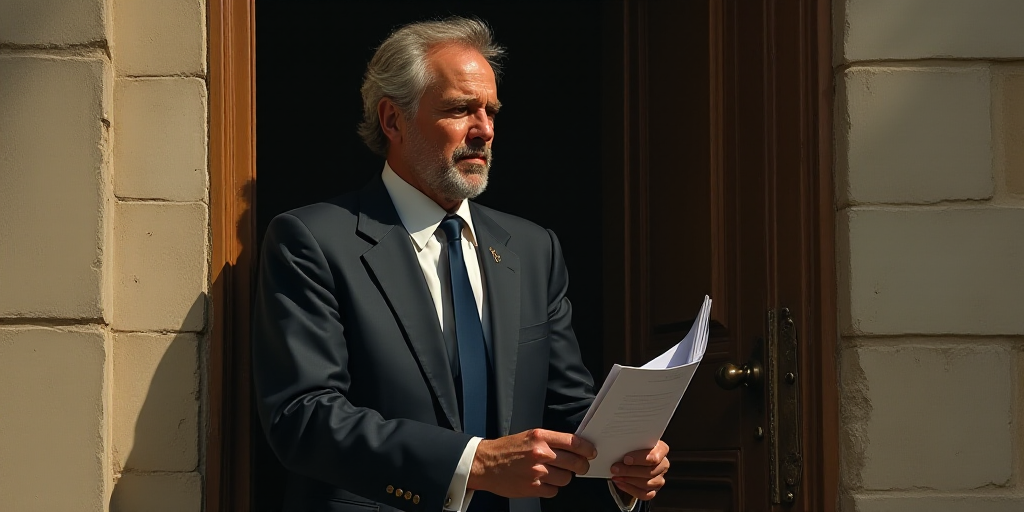Introduction
On Tuesday, French President Emmanuel Macron appointed Sébastien Lecornu, the current Minister of Defense, as the new Prime Minister to replace François Bayrou, who served only nine months in the role. This decision comes shortly after Parliament voted down Bayrou’s government and amidst growing political instability.
Background on Key Figures
Emmanuel Macron: The current President of France, elected in 2017. Macron has faced significant political challenges since taking office, including multiple government changes due to ongoing instability.
François Bayrou: The former Prime Minister, who resigned after his government was rejected by Parliament and ahead of widespread protests. Bayrou served as Prime Minister for nine months.
Sébastien Lecornu: A 39-year-old politician who has been the Minister of Defense for over three years, including during France’s response to Russia’s invasion of Ukraine. Lecornu is known for his loyalty and discretion towards Macron.
Political Context and Challenges
Macron’s appointment of Lecornu as Prime Minister comes amidst a fragmented political landscape in the National Assembly, with no stable majorities since 2017. The President faces the difficult task of forming a new government, given the recent resignation of Bayrou and ongoing political turmoil.
In June 2017, Macron called for unexpected legislative elections, resulting in a divided Chamber with three major factions: left, center-right (governing), and far-right.
Ruptura o continuidad?
Macron’s choices for Prime Minister, Michel Barnier and François Bayrou, were intended to ensure stability. However, both fell short due to the lack of policy changes from Macron’s eight-year term. The leftist party La France Insoumise (LFI) has even proposed a motion to remove Macron from office, though it is unlikely to succeed.
The socialist party demands a “left-wing government” and suggests suspending the 2023 pension reform and increasing taxes on large fortunes, both of which are red lines for the current government.
Septiembre “de desmanes”
With time running out to form a new government, protests supported by LFI are scheduled for Wednesday. Authorities fear a repeat of the “yellow vest” movement (2018-2019) that shook Macron’s first term. A massive strike has also been called by unions for September 18.
The catalyst for these events was Bayrou’s proposed budget for 2026, which included €44 billion in cuts and the elimination of two public holidays.
Viernes de riesgo
This Friday, credit rating agency Fitch will review France’s sovereign debt. In March, it maintained France’s rating at AA- with a negative outlook, warning that it would downgrade the country if it fails to implement a credible medium-term reduction plan.
France’s public finances showed a deficit of 5.8% of GDP in 2024 and a debt of nearly 114%, the highest in the EU after Greece and Italy. Bayrou had warned of an “existential emergency” facing France before his resignation.
The growing uncertainty is reflected in the cost of France’s borrowing, with the 10-year debt yield surpassing Italy’s for the first time, a country long criticized for its debt management.
Key Questions and Answers
- Who is the new French Prime Minister? Sébastien Lecornu, who has been the Minister of Defense for over three years.
- Why was the previous Prime Minister, François Bayrou, replaced? Bayrou’s government was voted down by Parliament due to proposed budget cuts and changes, including the elimination of two public holidays.
- What challenges does Macron face in forming a new government? Macron must navigate a fragmented political landscape, with no stable majorities in the National Assembly, and growing public discontent.
- What is the current state of France’s public finances? France’s public finances show a deficit of 5.8% of GIB in 2024 and a debt of nearly 114%, the highest in the EU after Greece and Italy.
- What are the upcoming protests and strikes in France? Protests supported by La France Insoumise (LFI) are scheduled for Wednesday, and a massive strike has been called by unions for September 18.






